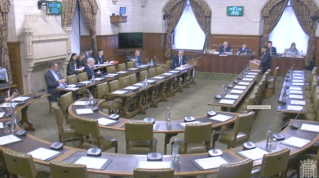Billions of pounds have poured into skills and education projects through the European Social Fund. Its replacement, the UK Shared Prosperity Fund, is set to go live in 2022 ̶ but is it ready?
“That money was an absolute lifeline, especially through the pandemic,” says Nickala Torkington, managing director of a not-for-profit which skills up unemployed women in Greater Manchester. “I’m really nervous about the move, and there’s not enough information out there.”
We are discussing the European Social Fund (ESF), a pot of money from the European Union the UK can no longer access since the vote to leave the EU. The last funding cycle ran from 2014 to 2020, but because of some delays in Whitehall, the final tranches of money will run out between now and June 2023.
This means thousands of not-for-profits, training providers and further education colleges are staring down an uncertain funding future. Many staff recall using the ESF since the 1980s.
‘UK got £4.4 billion in last cycle’
First, to untangle the jargon. The European Social Fund is one of the ‘EU structural funds’ the UK was eligible for as an EU member. It’s focused on unemployed adults and young people not in education, employment or training, and funds contracts for employment-related projects and vocational skills training.
It is almost entirely about resource spending on programmes – day-to-day costs – rather than capital spending. The other main EU structural fund is the European Regional Development Fund, which invests in enterprises. Skills and education organisations mainly accessed the ESF, say policy wonks.
And access it they did. The Department for Education told FE Week that in the 2014 to 2023 (extended) cycle, the ESFA has contracted out £912.5 million of ESF funds for education and training – with £708 million paid out by October.

But that’s only the amount contracted by the ESFA; combined authorities and others hold ESF contracts too. FE Week has crunched the government’s “list of beneficiaries” who got ESF cash not via the ESFA from 2015, last updated in July this year, searching for colleges only.
That showed £130 million was awarded to colleges, for work that in total cost £233 million, thereby covering about 55 per cent of costs.
The remaining project costs are usually match-funded by the Department for Work and Pensions at around 50 per cent, or 60 per cent for “transition” areas that are more deprived, and up to 80 per cent in especially deprived areas, such as Cornwall.
Just last year, college accounts show £32 million of ESF income in 2019-20 for 64 colleges, according to the Association of Colleges. Of those, 49 reported more than £100,000 in income and eight reported more than £1 million. This is not petty cash.
That’s before we come on to independent training providers and other organisations. In 2019, 84 independent training providers got £232 million in ESF money, according to the Association of Employment and Learning Providers.
ESF was a “quite consistent” income stream for ITPs, who weren’t always successful in domestic funding pots, according to Rebecca Durber, AELP’s director of public affairs.
Overall, £4.4 billion poured into the UK through the ESF in the 2014 to 2020 cycle.
‘Bitterly disappointing lack of detail’
“It’s safe to say there’s a lot of concern over the transition,” continues Durber. “ITPs are very much in the dark about the details.”
The transition is to the ‘UK Shared Prosperity Fund’. In 2017, the Conservative Party general election manifesto announced that a “community renewal fund” would act to prepare areas for the “UK SPF”.
The CRF offered £220 million to successful bidders from 2021 to 2022. It would then be followed by the UK SPF in 2022, which is meant to “reach around £1.5 billion” a year by 2024-25 and “at least match current receipts from EU structural funds”.
It’s safe to say there’s a lot of concern
But there have been major teething issues with both the CRF and SPF. Four years after SPF was first announced, organisations tell FE Week the only details they now know is that the fund will sit in the Department for Levelling Up, Housing and Communities, and is in Neil O’Brien’s brief ̶ the department’s parliamentary under-secretary.
The only other detail is that £560 million of UK SPF will go on a new adult numeracy fund called ‘Multiply’.
But it’s not enough clarity.

Elizabeth Taylor, chief executive at Employment Related Services Association, a membership body, said her members were “bitterly disappointed” there wasn’t more detail in the spending review.
“The end of the European Social Fund is of real concern to the employment services sector – it’s been a major part of funding for decades,” she says.
Her organisation published recommendations in a report called Sharing Prosperity two years ago but she says few details have been forthcoming since then.
Come and talk to us about the transition
The next hope for clarity is the Levelling Up white paper, which the government has promised will be published this year. It leaves just a few weeks to go – and providers warned FE Week they haven’t been consulted about the design of the SPF.
“Come and talk to us about the transition,” urges Simon Parkinson, chief executive at the Workers’ Educational Association, adding: “The government must also look at current ESF providers now and identify those projects with a strong business case for continuation funding, so there isn’t a cliff edge.”
In other words, the call is for ministers to find out what has – and hasn’t – worked with ESF.
‘Bureaucratic but flexible and diverse’
One of the ESF’s best qualities was the range of programmes it would fund, says Parkinson. “The clue is in the title: ‘social’. The ESF funded a diversity of provision with a community focus. It’s important that isn’t lost to a replacement ‘skills’ fund.”
The range of ESF projects is indeed broad. Take Calderdale College in West Yorkshire, which is listed in the government’s “beneficiaries” spreadsheet as getting exactly £1 million, running from January 2021 to June 2023, to “enhance equal access to lifelong learning for all age groups”.
Ebrahim Dockrat, director of commercial services and partnerships, says the college has secured more than £180 million of ESF income since 2007, to work with 28,000 businesses and 130,000 individuals, including a ‘rapid response’ redundancy support programme.
The application paperwork was bureaucratic, says Dockrat, but the ESF was “much more flexible” than “other mainstream funding pots”, allowing the college to target missed groups and set its own strategies for engaging them.

This point is brought up again and again by providers – that the ESF involved too much paperwork, but mostly allowed a variety of approaches to engaging people, without demanding particular skills or qualifications as outcomes.
A very different provider to Calderdale College is Flourish Together, a social enterprise in Greater Manchester, whose contract is administered through the Workers’ Educational Association.
Torkington, the managing director, has won four lots of £20,000 to help women set up as social entrepreneurs, but is worried she might not get SPF funding for her careers programme in holistic health and wellbeing sectors.
“Because of the way the government sees employability skills, there’s a concern that there could be a narrower focus, into just sectors like construction.” Around 20 women handed up to £1,000 in ESF have then won further charitable or seed funding worth up to £50,000, she says.
The government needs to “see from the ESF what bang for your buck you can get from £20,000 if you scatter it to a diverse array of providers”.
In Blackpool, a charity called ROC won £20,000 in ESF cash and managed to support 11 out of 16 people into employment through gardening experience. “Lots of other small grants are for other costs,” explains James Baker, garden development manager.
“The hardest thing to find money for is staff costs, and the ESF did that.”
His words are echoed by Mark Cowling, a trustee at Third Space, a charity in Bolton which trains people in property renovation, whose funding runs out in 2022.
Cowling didn’t actually find the ESF too bureaucratic: “They wanted video testimonies as well as statistical records. It’s a resource to do, but it then means you’ve got impact data to communicate to other organisations.”
The contracts were also well managed, he adds, with payments arriving quickly after bid decisions.
‘Community renewal fund not fantastic’
The same speed cannot be said about the Community Renewal Fund, according to those who won contracts for it.
“The CRF commissioning process has not been fantastic,” warns Anthony Smith, development director at DBC Training, an ITP in the East Midlands. Organisations put in their CRF bids around April for decisions in July, with contracts to run from August 2021 to March 2022.
But decisions were delayed by three months, and deadlines are now in June.
“But now for me the question is, how will the CRF truly inform the design of the SPF? They should be fine-tuning it it off the back of the CRF, but there won’t be time.”
Calderdale College also won a bid for the CRF, but Dockrat warns: “The application process was overly bureaucratic.”
Lessons from the ESF are not being learned.
“The CRF is a case study of how not to do it,” summarises Stephen Evans, chief executive at Learning and Work Institute.
The SPF should also not pit bidding organisations from different areas to compete against one another, says Evans, as some areas could miss out. Instead, the government should use a formula to ringfence money for areas and “let local areas decide where the money goes and on what”.
But the omens aren’t good. The Multiply programme specifies a skill – numeracy – and is UK-wide, ignoring devolved education powers. “The UK government is taking control and centralising things, rather than devolving them across the UK, and in England as well,” warns Evans.
‘Lack of consultation or partnership’
Meanwhile, more questions remain: it’s not yet known who will administer the contracts ̶ combined authorities or chambers of commerce? Nor whether ministers will try to align the SPF with local skills improvement plans. “What’s the integration with this? There’s no synergy,” sighs Smith.
Andy Churchill, chief executive of the Network for Europe, which supports organisations in the north-west to deliver ESF projects, points out that “a condition of ESF funding was partnership work. There’s been no partnership work or proper consultation about the SPF so far.”
Of course, the biggest question of all is whether the SPF money will really be the same as ESF. FE Week asked the DfE whether the government is including its own match-funding in its projections of SPF, but was simply told “more details in due course”.
A lot is resting on the leveling-up white paper in the next few weeks.
“It’s a shambles,” says Churchill. “It really is.”









I’m so pleased this is being looked in to. Excellent article.
Britain has for 42 of the 43 years contributed more into the European Union than it has received, including FE funding. One does not need to be grateful to received at least some money back from such an expensive membership.
The article expresses fear of change. However change can be positive. The UK population instructed our Government to take back legal of our democratic institutions, freedoms and laws.
The article complains about the Government (i.e. our civil service) suggesting it is slow to adapt and communicate the democratic changes instructed by the public though the Ministers. Change does take time. Especially fundamental changes in finance and law.
Already, within a few years the UK has almost entirely made the transmission successfully to being the largest free democracy in Europe. Funding mechanisms are now fully in place and are more responsive to UK needs, focusing on raising standards especially in communities who need help most.